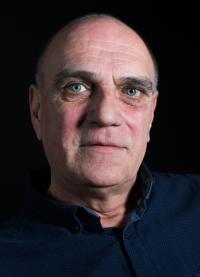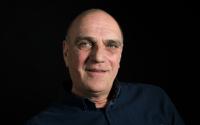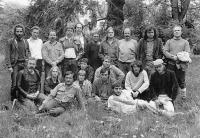I didn’t want just to sit in a pub and complain about the regime

Download image
Petr Bartoš was born on July 20, 1960, in Gottwaldov (under socialism the name for the town of Zlín). His father was the chief consultant at the psychiatric department in the local hospital, his mother a teacher at the special school. He studied at a university, specialising in economy and consumer industry management. He was given a job in the planning department of the District National Committee in Gottwaldov. Since his early years he had a negative stance towards the communist regime. The dissident Stanislav Devátý lived in the same house and had an influence on him. In 1987, they renewed the Society of Friends of the United States (SPUSA), but the authorities did not allow to register it. They worked in secrecy. They issued the SPUSA magazine, printed literature which was banned, laid wreaths to monuments of U.S. fighter pilots who died in the Czechoslovakian territory during WWII, albeit the U.S. liberators were not talked about under socialism and children at schools learned that Czechoslovakia was liberated completely by the Soviet army. He was arrested and taken for interrogation many times. The Secret Police installed a bug in his flat and searched his flat several times. Due to his activities he had to leave his job position. Until November 1989 he worked in the Agricultural Cooperative in Vlachovice. After the revolution he was elected into the municipal board and served as the secretary of the Municipal Committee. He also worked as the director of R. Jelínek liquor factory in Vizovice, was the deputy to the regional authority of the Zlín region. In 2017 he worked as the chairman of the Board for Radio and TV Broadcast in Prague.


